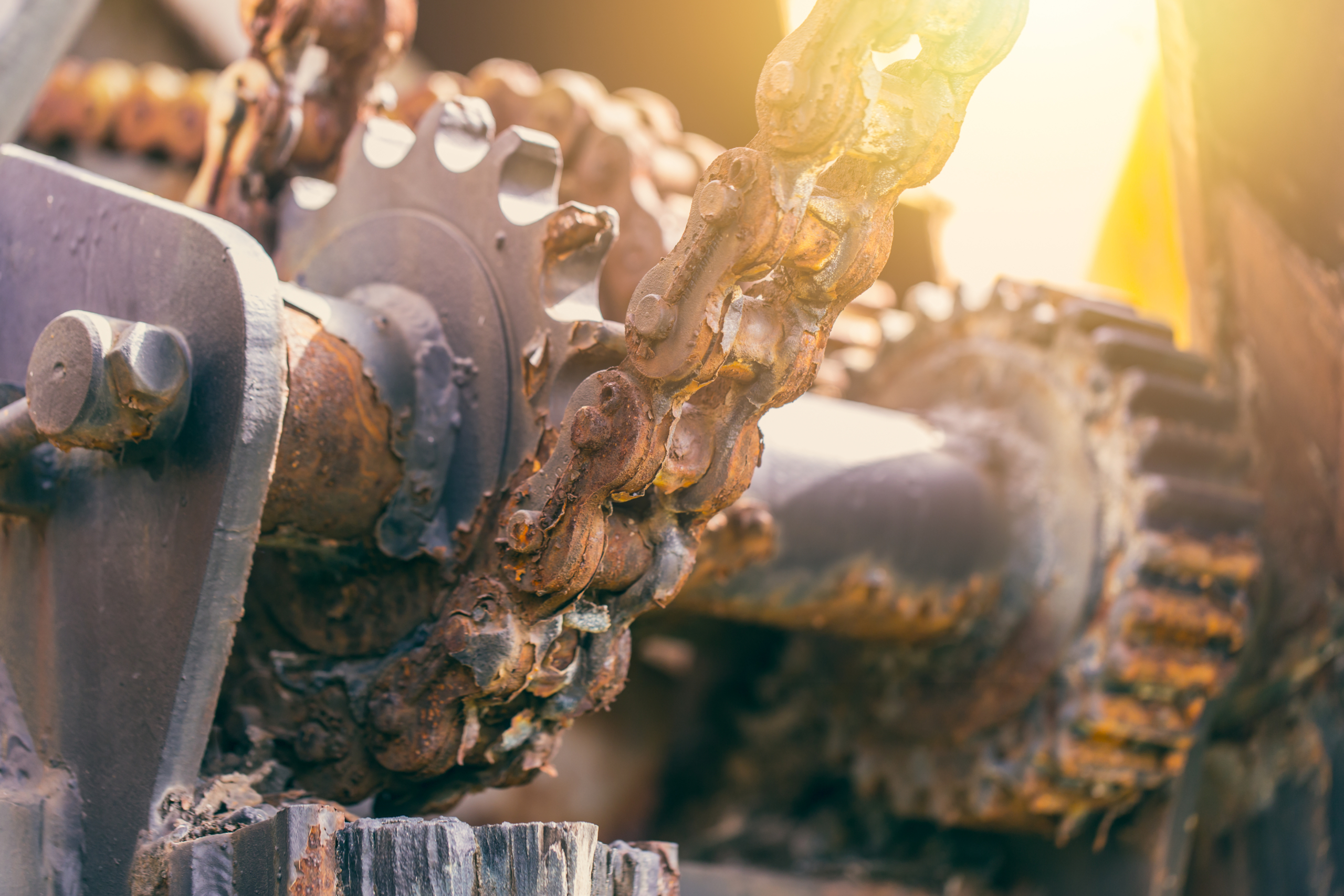Here at LH Travis, we’ve discussed some of the properties of a lubricant that you should be aware of, like viscosity and how it interacts with water. Now, let’s take a look at another problem that can be mostly prevented by choosing the right lubricant: corrosion.
Corrosion Is More than Just Rust
In many cases, corrosion takes place as rust. This is the result of a chemical reaction in which iron, water, and oxygen combine to create hydrated iron oxide. What’s happening here is that the iron is oxidizing, most likely triggered by moisture in the air, breaking down the iron through the process of corrosion.
The problem here should be self-evident. Rust compromises the integrity of iron, which can result in some disastrous equipment failures. At LH Travis, we know most machine failures can be prevented. That’s why we advocate for protecting your equipment’s iron components with an appropriate lubricant.
Coating metal with oil creates a barrier to prevent environmental contaminants and water from coming into direct contact with the metal. Since there is always some amount of water present in the air around us in the form of moisture, that protective film of oil is basically always necessary.
The chemistry of this situation is that oil is denser than water, so the two substances will not mix. Plus, the molecules of water are more strongly attracted to each than they are to the hydrophobic oil molecules, meaning the two strongly repel each other.
The Bottom Line
You don’t really need to know all the chemical details of how and why water and oil don’t mix or the process by which corrosion occurs. The important principle to take away is that corroded metals make for compromised equipment, leading to major malfunctions, and this can often be entirely prevented with proper lubrication maintenance. If you have further questions about how to protect your machinery, just give LH Travis a call.

